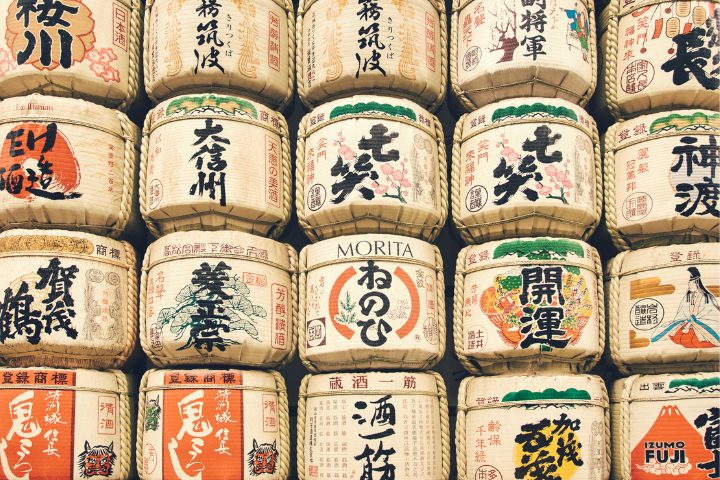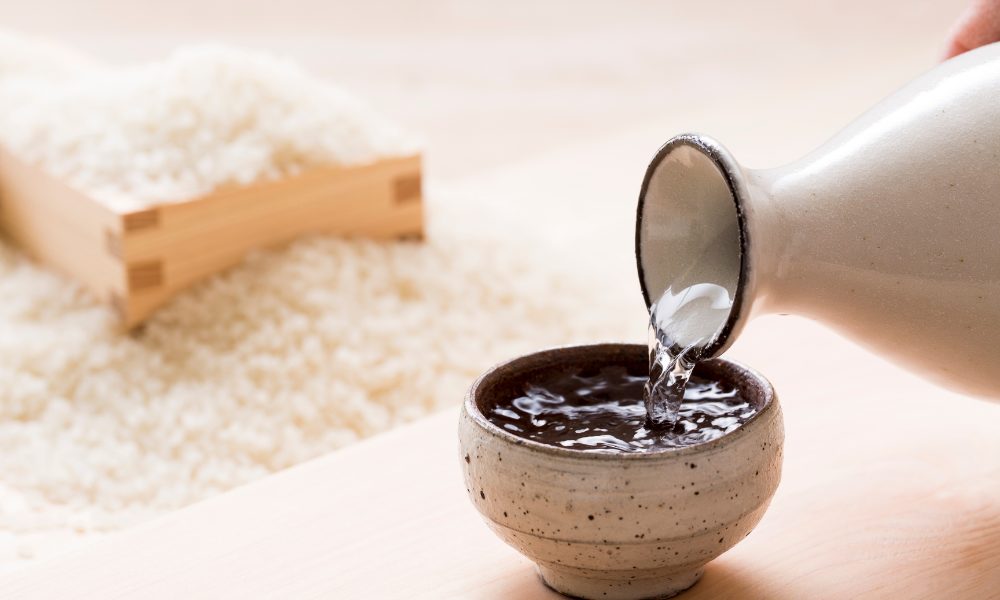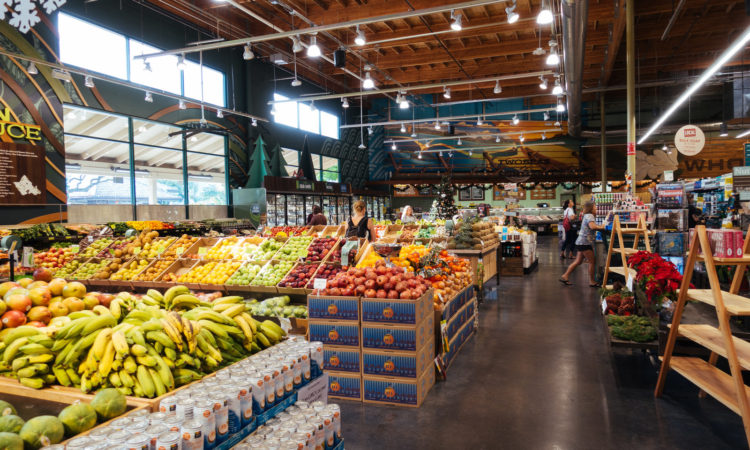Sustainability in sake-making refers to practices that minimize environmental impact, preserve cultural heritage, and support local communities. First of all, sustainably sourced sake involves particular attention to rice and water, the main ingredients for sake production. Still, it also involves a holistic approach that considers environmental, social, and cultural factors. By embracing sustainable practices, sake producers contribute to the preservation of Japan’s cultural heritage, protect natural resources, and produce high-quality sake for consumers worldwide.
Let’s discover what is behind sustainably sourced Japanese sake.
Rice and Water
 Image credit: Canva
Image credit: Canva
Rice cultivation is a critical starting point in sake brewing, with sustainable practices emphasizing environmentally friendly farming methods such as organic or low-input techniques, water conservation, and biodiversity preservation in rice paddies.
Water management is essential for maintaining water quality in sake brewing. Sustainable breweries prioritize water conservation, efficient usage, and protection of water sources through wastewater treatment and pollution prevention measures.
Izumibashi Sake Brewery, based in Kanagawa, has adopted the slogan “Sake Starts with Rice” and has become a certified “Cultivation Brewery”. A “Cultivation Brewery” refers to a sake brewery that cultivates, harvests, and mills its rice for sake production. These brewers view sake as an agricultural product, overseeing the entire process from rice cultivation to brewing.
To preserve healthy fields for future generations, Izumibashi Brewery minimizes the use of agricultural chemicals, implements regular resting periods for their fields, tends to neglected areas, and adopts various environmental conservation measures. Moreover, they prioritize the well-being of the flora and fauna within their fields, ensuring a sustainable and thriving environment for future generations.
At the center of Niida Honke Sake Brewery in Fukushima is the connection between the production of sake and fostering the local land, environment, and community.
Their vision is to safeguard Japan’s rice fields, integral to its landscapes and culinary heritage. With a commitment spanning generations, they strive to become self-sufficient and to meet all supply needs locally, including the crafting of wooden sake barrels from trees on their grounds, preserving the fading tradition of barrel making.
Sourcing rice from farmers and avoiding chemical fertilizers and pesticides, the brewery established the Niida Honke Aguri cooperative in 2009. Their organic rice received JAS certification (Japanese national standards established by the Minister of Agriculture, Forestry and Fisheries in the fields of food, and agriculture) the same year. Water for sake production and equipment cleaning is drawn from a natural mountain spring and an onsite well. Emphasizing sustainability, 95% of their bottles are reusable, aligning with their eco-conscious practices.
Energy Conservation and Energy Efficiency
Energy efficiency is also a key consideration in the process of making sake production more sustainable, with sake breweries implementing technologies and practices to reduce energy consumption and greenhouse gas emissions. This may involve using renewable energy sources and optimizing heating and cooling systems.
The Yamatogawa Sake Brewery in Fukushima embarked on a journey towards energy self-sufficiency in 2013. Reflecting on the lack of awareness about the nearby nuclear power plant after the Great East Japan Earthquake in 2011, the brewery decided to pursue local energy production and consumption, utilizing regional resources instead of relying on large-scale power plants. This shift also mirrors a global trend towards renewable energy, accelerated in Japan post-nuclear disaster: the brewery employs solar and small-scale hydroelectric power, boasting 89 facilities across Fukushima Prefecture with a total output capable of servicing 1,800 households.
Shunshikan, a sake brewery based in Kobe, has been diligently monitoring and enhancing its CO2 emissions and energy-saving practices. Amidst a decline in sake demand since its peak in the 1970s, the brewery remains committed to producing the highest quality product while addressing contemporary societal challenges. Moreover, Shunshikan actively fosters connections with the community and promotes Japanese traditional culture. By aligning with modern environmental standards and preserving cultural heritage, Shunshikan strives to ensure its sake remains relevant and of the finest quality in today’s evolving society.
Waste Reduction and Circular Economy

Image credit: Canva
Waste reduction is another important aspect of sustainability. Breweries aim to minimize waste generation and implement recycling initiatives, often repurposing brewing by-products like rice bran (kasu) for other uses.
Tsunan Sake Brewery, from Niigata, is pioneering a circular economy initiative aimed at transforming sake lees into valuable resources. This effort marks a significant step towards waste reduction and resource optimization within the sake production process. Through innovative approaches like the Flavor Oyster, a novel oyster product made from sake lees, the brewery is redefining traditional by-product utilization. Their circular action plan encompasses reusing sake lees, upcycling them into diverse products like ice cream and the Flavor Oyster, and reinvesting profits to support rice farmers. This cyclical approach not only minimizes waste but also addresses broader agricultural challenges, including land abandonment and soil degradation. The Ethical Sake Project, a cornerstone of this initiative, underscores the brewery’s commitment to sustainability and community resilience by bridging the gap in unharvested rice and revitalizing rural landscapes.
Tradition and Community
Traditional brewing techniques play a significant role in Japanese sake-making, with many breweries preserving these methods while integrating modern sustainability practices. This helps honor cultural heritage and maintain the authenticity of Japanese sake.
Community engagement is integral to sustainable sake production. Breweries actively support local economies, cultural preservation efforts, and sake appreciation activities, fostering connections with consumers and promoting awareness of sake culture.
Within its facilities, Niida Honke has a direct sales shop, and gallery, and organizes events to establish a self-sustaining sake brewery and community. Their vision involves fostering a strong connection and interaction between people through the concept of “visible brewing” and customer engagement in product creation processes.
Behind Japanese Sustainably Sourced Sake
In conclusion, sustainably sourced sake production encompasses a multifaceted approach that prioritizes environmental conservation, cultural heritage preservation, and community engagement. From conscientious rice cultivation to efficient energy use and waste reduction initiatives, breweries are leading the charge toward a more sustainable future for sake-making in Japan. By embracing these practices, sake producers not only ensure the quality and authenticity of their products but also contribute to the well-being of local ecosystems and communities.
Related Articles:
- Coco Farm & Winery: Sustainable Farming and the Special Team Behind It
- Japanese Craft Beer You Have to Try
- Famous Japanese Sake – Why Niigata Sake is So Good
Featured image credit: Canva






